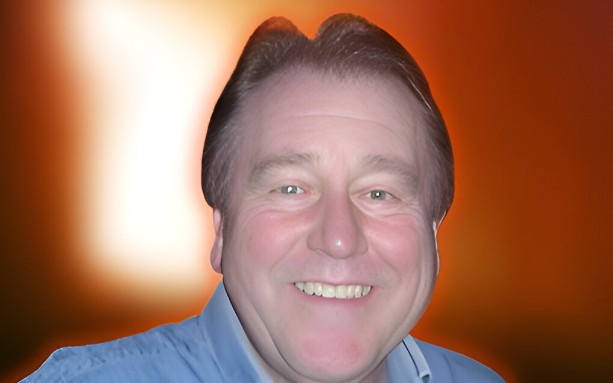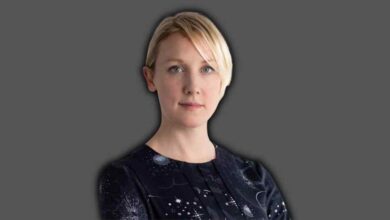John Alkin: The Remarkable Journey from Screen Star to Spiritual Healer

John Alkin is a name that resonates with fans of classic British television, remembered fondly for his strong performances in shows such as The Sweeney, Crown Court, and Z-Cars. With a commanding presence and compelling screen presence, Alkin carved out a notable niche in British drama throughout the 1970s and early 1980s. Yet, his career took an unexpected and deeply personal turn when he left the limelight to pursue a spiritual path. This article explores John Alkin’s intriguing journey — from celebrated actor to spiritual guide — showcasing the profound transitions that defined his life and legacy.
Early Life and Entry into Acting
John Alkin was born John Kenneth Foinquinos on 17 January 1947 in Rugby, Warwickshire, England. From an early age, Alkin showed a penchant for the performing arts. The decision to adopt the stage name “John Alkin” was a strategic move to appeal to broader audiences and simplify his unique surname for the entertainment industry. His transformation into John Alkin marked the beginning of a professional journey that would lead him through the heart of British television.
The 1970s and early 1980s were fertile ground for actors looking to establish themselves in drama, and John Alkin quickly became a familiar face. His early roles demonstrated a natural talent for portraying layered characters, often those rooted in law enforcement or the judiciary, which suited his commanding voice and serious demeanour.
Rise to Fame: The Sweeney and Crown Court
Alkin’s breakout role came as Detective Constable Tom Daniels in the gritty police drama The Sweeney, which ran from 1975 to 1978. The show was revolutionary in its depiction of the harsh realities of police work in London’s Flying Squad, offering a raw, often brutal portrayal of crime and punishment. Alkin’s portrayal of Tom Daniels added depth and credibility to the ensemble cast, helping the series gain a loyal following. He also reprised this role in the two Sweeney films, further solidifying his standing as a reliable and compelling actor.
Another career-defining role was as barrister Barry Deeley Q.C. in Crown Court, a Granada Television courtroom drama that aired on ITV. Alkin appeared in over forty episodes, becoming a staple of the show’s rotating cast. His poised and articulate portrayal of Deeley captured the gravitas of legal proceedings and helped bring a sense of authenticity to the courtroom drama. It was a role that showcased not only his dramatic abilities but also his versatility as an actor.
Other Notable Appearances
In addition to these standout roles, John Alkin had an extensive portfolio of guest appearances across some of Britain’s most popular television series. These included:
-
Z-Cars, one of the first British police procedurals.
-
Timeslip, a science fiction adventure that captured the imagination of younger audiences.
-
Doctor Who, where he appeared in a memorable guest role during the Tom Baker era.
-
Space: 1999, where his presence added weight to the science fiction themes.
-
Secret Army, in which he played Flight Lieutenant Andre de Beers, a resistance fighter in Nazi-occupied Europe.
-
Minder and The Sandbaggers, both of which continued to cement his place in the British TV canon.
Such roles made John Alkin a sought-after character actor who could be relied upon to bring gravitas and nuance to his performances.
Transition from Acting to Spiritual Healing
Despite his success on screen, Alkin made a bold and life-altering decision in the mid-1980s: he left acting altogether. For many, such a move would seem unexpected, even drastic. However, for John Alkin, it was a calling that would bring him even greater fulfilment — the pursuit of spiritual healing.
Together with his second wife, Lee Everett Alkin (formerly Lee Middleton), a woman with a rich and colourful history of her own, he founded a spiritual healing centre. The couple dedicated themselves to helping others find inner peace and emotional clarity through alternative therapies. This marked a dramatic departure from the performative world of acting to one focused on introspection, mindfulness, and emotional wellbeing.
Lee Everett Alkin was herself a public figure — once married to radio DJ Kenny Everett and known for her glamour and charisma. Her partnership with John was not just romantic but also professional, and together they created a sanctuary for those seeking meaning beyond material success.
A Quiet but Influential Later Life
John Alkin’s post-acting years were lived largely out of the public eye, but the impact of his work in spiritual healing should not be underestimated. He and his wife became respected figures in this space, with many clients testifying to the life-changing benefits of their sessions.
Their centre provided a blend of practices — including meditation, energy work, and personal development — aimed at achieving holistic wellbeing. While Alkin did not publicise these activities as widely as his acting, the influence he wielded within this community was significant.
His decision to leave the world of television for something so personal and intangible reflects a depth of character that goes far beyond the roles he once portrayed. It is a testament to a man unafraid to follow his convictions, even when it meant turning away from fame and financial comfort.
Legacy in British Television
Though John Alkin has not returned to acting since the 1980s, his legacy endures. Fans of classic British television continue to revisit his performances in The Sweeney, Crown Court, and other productions. His characters remain etched into the memories of those who grew up watching him, representing a golden era of British TV drama.
Moreover, his influence is felt beyond the screen. In choosing a life of healing and personal service, Alkin demonstrated that fulfilment need not be tied to public acclaim. His life journey illustrates the power of reinvention and the value of listening to one’s inner calling.
Personal Life and Relationships
John Alkin’s personal life has been as intriguing as his professional one. His marriage to Lee Everett Alkin in 1985 marked a union between two distinctive individuals, each of whom had carved out their own path in British media and culture.
Lee, known for her spiritual interests and earlier celebrity associations, found in John a partner equally committed to personal growth and helping others. The couple created a life centred around peace and healing, a far cry from the high-stakes world of television and celebrity.
From his first marriage, John Alkin also has two children. While he has largely remained private about his family life, this aspect of his biography speaks to the groundedness and humility with which he has approached his personal journey.
Reflections on an Unconventional Life
John Alkin’s life is a compelling study in contrast and transformation. On one hand, he was a respected actor with a strong following and a consistent television presence. On the other, he became a spiritual guide, working quietly but meaningfully to impact people on a deeply emotional level.
This dual legacy — one of artistic expression and one of healing — is rare and admirable. It speaks volumes about a man who was never content with surface-level success and always sought deeper meaning in the paths he walked.
Conclusion
John Alkin’s story is not merely one of a talented actor who graced our screens in the heyday of British television. It is also the story of a man who found the courage to step away from the spotlight in pursuit of something more profound. His journey from The Sweeney to spiritual healing is one that invites admiration, reflection, and respect.
While many may remember John Alkin for his stern on-screen personas and courtroom poise, those who followed his later life understand that his greatest role may well have been off-camera — as a healer, guide, and seeker of peace. In an age where fame is often considered the ultimate goal, John Alkin’s life is a powerful reminder that true success is deeply personal and often quietly achieved.



